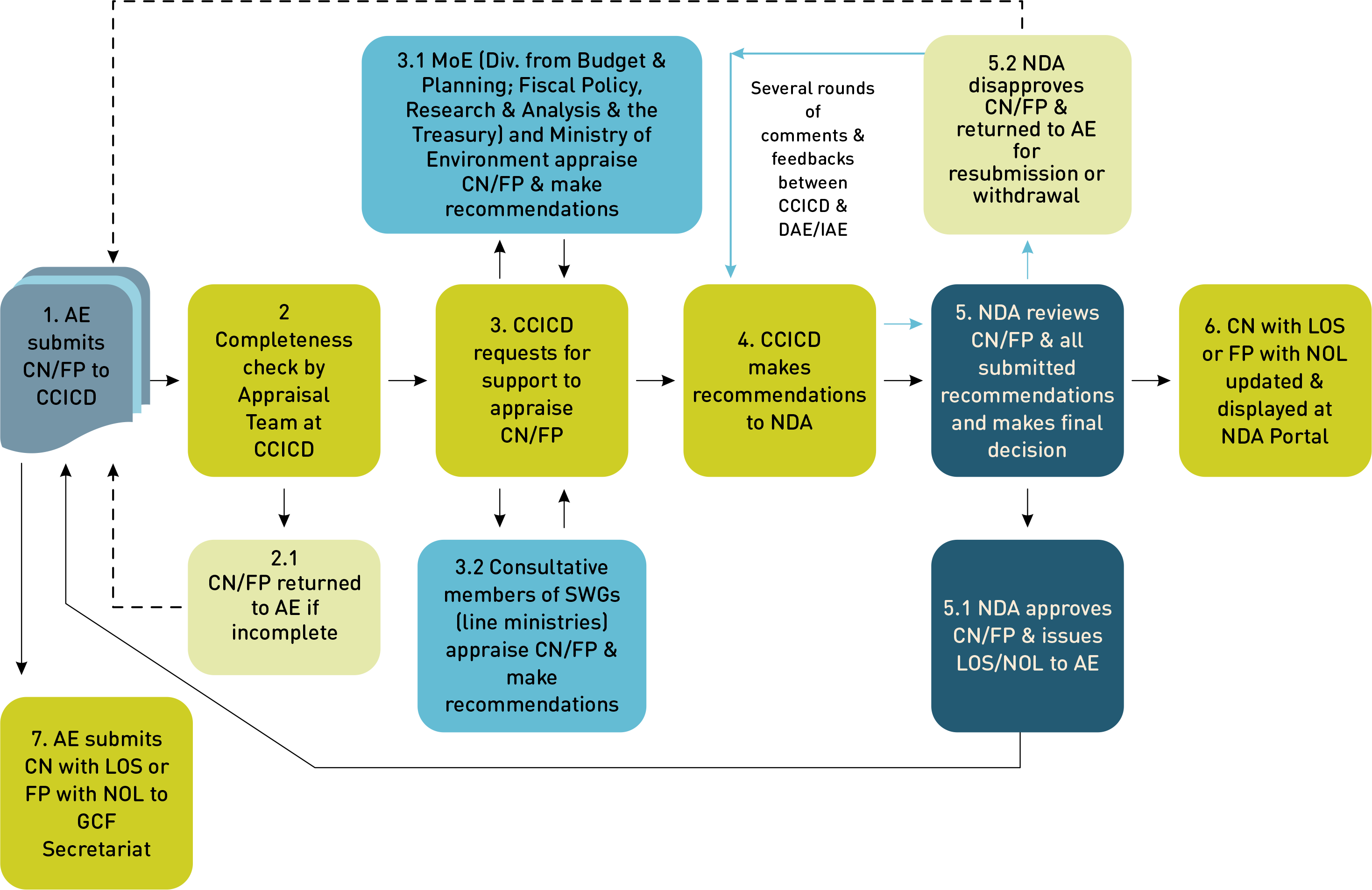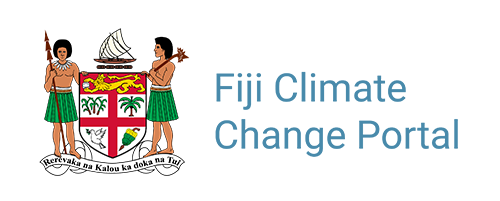NDA Secretariat
The NDA Secretariat supports a range of activities:
- Coordinate with government, private sector, civil societies, academic institutions, and stakeholders as per the framework.
- Facilitate meaningful engagement with stakeholders in the GCF process to gather inputs, build synergy and create ownership.
- Coordinate the climate change and climate finance discourse in Fiji through the SWG and the NDA portal.
- Provide regular updates, information, and knowledge products on GCF matters through the NDA portal.
- Inform key stakeholders about their expected involvement and role in the GCF process.
- Hold country meetings, national planning, multi-stakeholder dialogue and workshops on the GCF.

GCF Portfolio
No. of projects
Total GCF financing
No. of Readiness activities
Readiness support approved
Readiness support disbursed
Accreditation Process
Entities must demonstrate their ability to manage projects and resources according to the GCF standards and criteria. The accreditation process covers an applicant entity’s policies and procedures. It also covers the track record and demonstrated capacity to undertake climate finance projects or programmes. Different financial instruments and environmental and social risk categories are assessed against the standards of the GCF.
Entities seeking accreditation must submit a completed fit-for-purpose application through the GCF Online Accreditation System.
The result of the accreditation process will specify different aspects:
- The project or programme activity size
- The fiduciary functions, which shape the operations and use of GCF resources (grants, loans, equity, and guarantees)
- The category of environmental and social risk of its intended projects.
The accreditation approach recognises a wide range of entities. It accommodates a diverse scope and nature of activities and capacities in advancing the objectives of the Fund. The approach matches the nature, scale, and risk of activities to fiduciary standards, environmental and social safeguards, and gender policy.
GCF Programme and Project Activity Cycle
The GCF Programme and Project Activity Cycle comprises a range of steps and approvals.
The project developer submits concept notes to the NDA for approval. The NDA determines if the project is aligned with the country work program. As part of the NDA review, the concept note is sent to stakeholders from the public and private sector. Once the NDA is satisfied with the concept note, it issues a No-Objection Letter (NOL) for the project.
The concept note is then developed into a project funding proposal. Projects can be implemented by the DAE itself or in partnership with International Accredited Entities (IAEs). IAEs include the World Bank, Asian Development Bank etc.
The funding proposal needs to pass various approval stages to become a GCF-funded project. The project implementation is monitored and evaluated for progress.

Further details are described in the GCF site.
Letter of Support (LOS) and No-Objection Letter (NOL) Procedure
The LOS and NOL procedure outline the steps and processes to approve concept notes (LOS) and funding proposals (NOL). The procedure is based on international lessons learned and the GCF programming manual.
The purpose of the LOS and NOL procedure is to ensure consistency with different national frameworks. This includes the national development agenda and climate related strategies or plans. It aims to mobilise demand-driven approaches, and effective public and private sector financing (both direct and indirect) by the GCF.
It is not mandatory to submit a GCF concept note. However, the Fijian NDA strongly encourages project proponents to submit a concept note through the LOS procedure. This provides an opportunity for the GCF to provide initial feedback on the concept proposed.
The No-Objection Letter (NOL) is required for all funding proposals submitted to the GCF. It should be provided to the GCF in conjunction with any submission of a funding proposal seeking GCF funding. The no-objection procedure is a ‘living’ document. It will be revised based on evolving needs and experience gained during the implementation. The concept note for the NOL procedure is available here.


